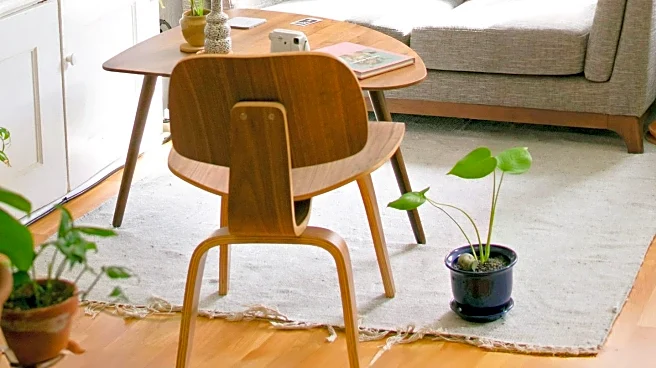What's Happening?
NBC News' podcast 'For What It's Worth,' hosted by Lauren Swanson and Zoe Malin, explores strategies for making small living spaces feel larger and more organized. The episode discusses various hacks and products
that can help transform cramped apartments into functional and aesthetically pleasing homes. Key recommendations include utilizing vertical storage, under-bed storage, and modular furniture to maximize space. The hosts share personal experiences from living in small dorm rooms and apartments, emphasizing the importance of creativity and organization in small spaces. They also highlight the use of peel-and-stick wallpaper and floors to add personality and warmth to otherwise plain environments.
Why It's Important?
As urban living becomes increasingly common, many Americans face the challenge of making the most out of limited space. The tips provided in the podcast are valuable for renters and homeowners alike, offering practical solutions to enhance living conditions without major renovations. This focus on small space living reflects broader trends in real estate and urban planning, where efficient use of space is crucial. The advice can help individuals improve their quality of life, reduce clutter, and create a more personalized living environment, which is essential in densely populated areas where space is at a premium.
What's Next?
Listeners of the podcast may be inspired to implement these strategies in their own homes, potentially leading to increased demand for organizational products and DIY solutions. Retailers specializing in home goods and storage solutions could see a boost in sales as consumers seek to optimize their living spaces. Additionally, the podcast may encourage further discussions on sustainable living and the importance of reducing waste by prioritizing multifunctional furniture and decor.
Beyond the Headlines
The emphasis on small space living also touches on cultural shifts towards minimalism and sustainability. By encouraging people to declutter and organize, the podcast aligns with movements that advocate for reducing consumerism and focusing on meaningful possessions. This approach not only benefits individuals by creating more livable spaces but also contributes to environmental efforts by reducing waste and promoting the reuse of materials.









